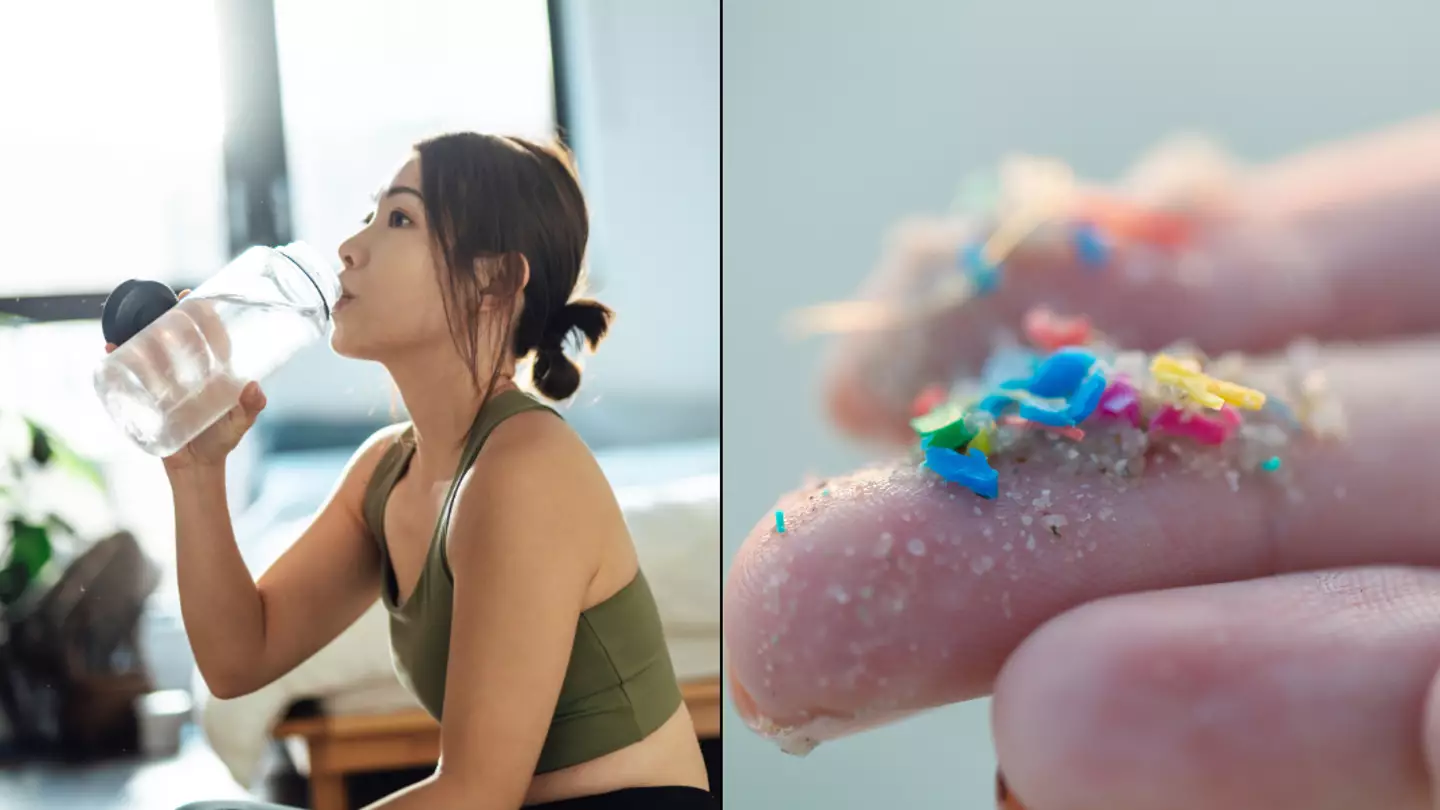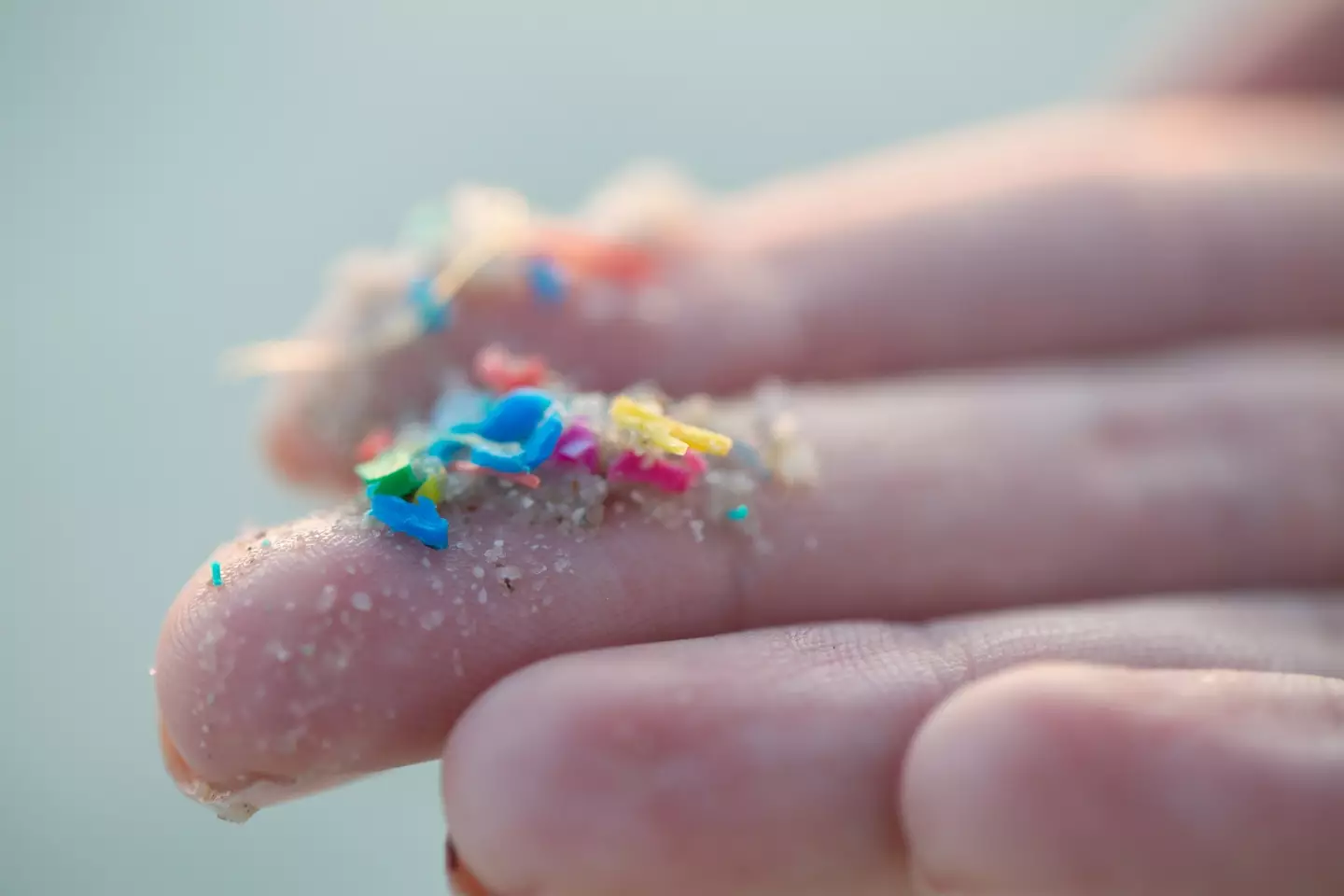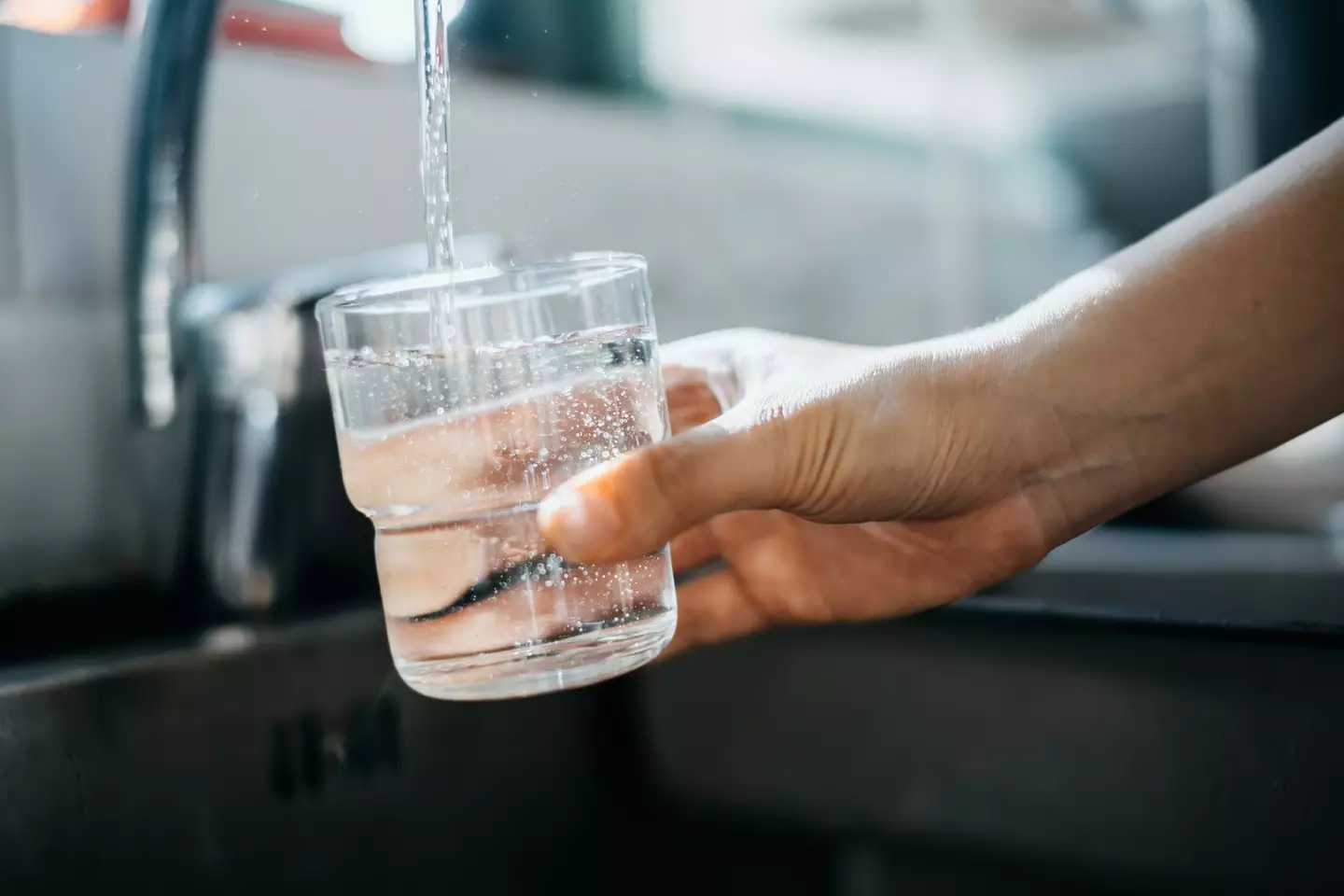
Dangers associated with consuming microplastics are very much real, with a number of studies saying they can harm us in ways you might not even think of.
But there's a simple way we can drastically cut down just how much microplastic gets in to our systems, according to new scientific research.
Every week, some people eat or drink around one credit card of plastic through microplastic inhalation, so says research by the University of Technology Sydney.
Advert
And while I don't know about you, I'm not really comfortable with the idea of munching down on a debit card every seven days.
Thankfully due to the new findings from scientists in China, the problem can be drastically lessened.
A joint effort from researchers at Guangzhou Medical University and Jinan University looked at the dangers of microplastics in tap water.
Advert
They found that microplastics are finding their way through centralised water treatment systems and getting in to the pipes that supply our homes.
To conduct their tests, which looked at both soft and hard tap water, scientists added nanoplastics and microplastics (NMPs) to the water.
They then did one simple thing that we all do multiple times a day: they boiled the stuff. The next step was to filter it.
The findings were startling, with as much as 90 percent of the plastics no longer visible in the water when put under the microscope.

Advert
Writing in Environmental Science & Technology Letters, researchers wrote: "This simple boiling water strategy can 'decontaminate' NMPs from household tap water and has the potential for harmlessly alleviating human intake of NMPs through water consumption."
The study concluded that 'boiling through electric kettles and/or gas stoves could be environmentally friendly household water treatment'.
It added: "In this context, reducing human nano / microplastic intake by drinking boiled water is a feasible approach worth promoting worldwide."

Data from the University of Columbia says that there are around 240,000 plastic particles found in the average one-litre bottle of water. They have impacts on our respiratory system, seeing people cough and sneeze more as well as become short of breath.
Advert
The issues can also be a bit more serious with links to cancer and children being born with defects.
Dr. Janine Bowring, ND, a naturopathic doctor and best-selling author, says we can 'detox' our body of these small bits of rubbish by focusing on specific probiotic products.
"Studies have shown that specific probiotics like lactobacillus acidophilus, bifidobacterium bifidum have been shown to actually clear and trap these microplastics in the GI [gastrointestinal] tract, bind to them and eliminate them through our digestive tract," she says.
"That's because they're negatively charged, as the probiotics, and is going to trap those microplatics.
"My tip here, I always look for probiotics that has these specific strains that I mentioned without magnesium stearate which is a flow agent; without cellulose, a filler; and without those other toxic ingredients in probiotics like titanium or silicon dioxide."
Topics: Environment, Health, World News, Science